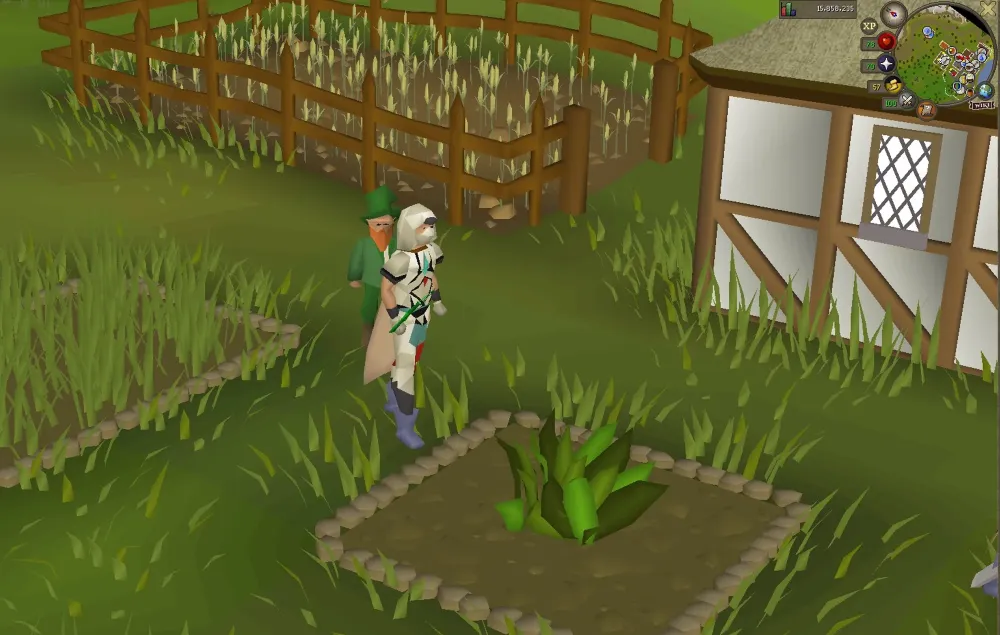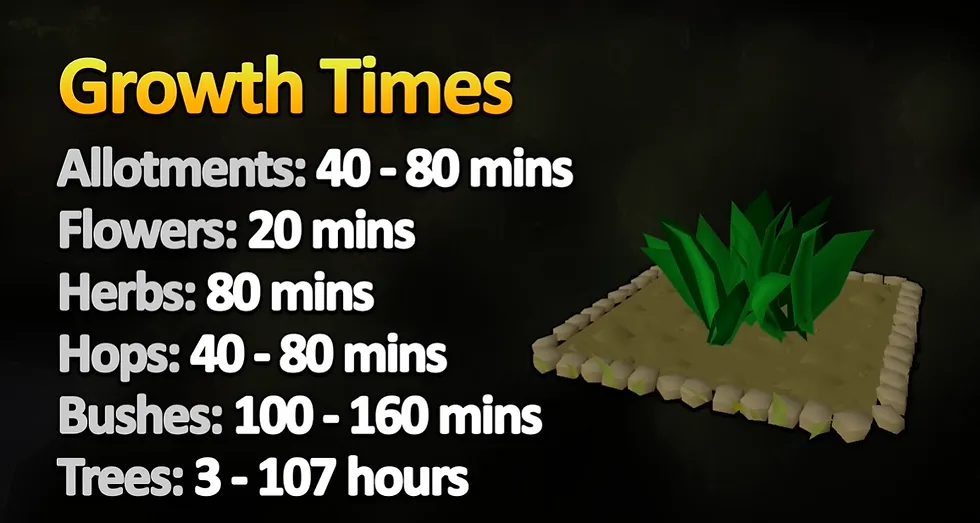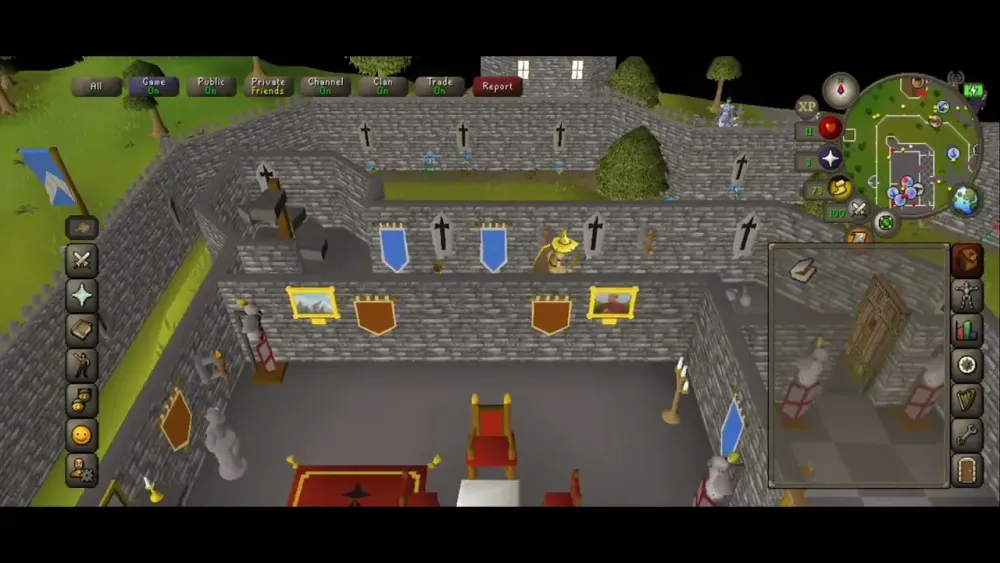Your cart is empty
How to Plant Seeds in Old School RuneScape A Step by Step Guide

Planting seeds in Old School RuneScape (OSRS) is a core part of the Farming skill, allowing players to grow crops like vegetables, herbs, and trees for profit or skill training. Whether you’re a beginner aiming to level up or an Ironman seeking self-sufficiency, mastering seed planting is key. This guide covers everything you need to know, from tools to patch locations, with tips to optimize your Farming runs. Let’s dig into the details!
Farming in OSRS involves planting seeds in specific patches across Gielinor, nurturing them, and harvesting crops for experience or resources. Unlike other skills, Farming is time-based, with crops growing even when you’re offline. It’s a low-effort skill but requires planning to maximize efficiency.
Why Plant Seeds in OSRS?
Planting seeds offers multiple benefits:
- Experience Gains: Farming provides significant XP, especially from tree and herb runs.
- Profit: High-level herbs like Ranarr or Snapdragon can yield substantial gold.
- Self-Sufficiency: Ironman players rely on Farming for Herblore and Cooking materials.
- Passive Training: Crops grow over hours, fitting busy schedules.
Types of Seeds Available
OSRS features various seed types, each suited to specific patches:
| Seed Type | Patch Type | Examples |
|---|---|---|
| Allotment | Allotment Patch | Potato, Watermelon, Snape Grass |
| Herb | Herb Patch | Ranarr, Toadflax, Torstol |
| Flower | Flower Patch | Marigold, Limpwurt, Nasturtium |
| Tree | Tree Patch | Oak, Willow, Maple |
| Fruit Tree | Fruit Tree Patch | Apple, Banana, Palm |
Essential Tools and Preparation

Before planting seeds, gather the right tools and prepare your patches. Most tools are available at Farming shops near patches, like the one in Catherby.
Must-Have Farming Tools
Here’s what you’ll need:
- Rake: Clears weeds from patches (4 XP per layer, 3 layers per patch).
- Seed Dibber: Plants seeds in patches (not needed after Barbarian Training).
- Spade: Harvests crops or clears dead plants.
- Watering Can: Waters seedlings for tree saplings.
- Gardening Trowel: Fills plant pots for tree seeds.
- Compost Bucket: Applies compost to reduce disease and boost yield.
Optional but Helpful Items
These items enhance efficiency:
- Magic Secateurs: Increases herb yield by 10% (unlocked via A Fairy Tale Part I).
- Farming Cape: Boosts herb yield by 5%.
- Amulet of Bounty: 25% chance to use one seed instead of three in allotment patches.
- Ultracompost: Minimizes disease and maximizes yield.
Step-by-Step Guide to Planting Seeds

Follow these steps to plant seeds effectively in OSRS:
Step 1: Clear the Patch
Use a rake to remove weeds from the patch. Weeds regrow over time unless you’ve unlocked weed-free patches via A Fairy Tale III – Orks Rift. Each layer cleared grants 4 XP.
Step 2: Apply Compost
Treat the patch with compost, supercompost, or ultracompost to reduce disease risk and increase yield. Ultracompost is highly recommended for herbs and high-value crops. Store compost with tool leprechauns for convenience.
Step 3: Plant the Seeds
Use a seed dibber to plant seeds in the cleared, composted patch. Allotments require three seeds, hops need four (except jute, which needs three), and herbs require one (up to 10 with Plant Power upgrades). Tree seeds need a sapling first (see below).
Step 4: Protect Your Crops
Prevent disease by:
- Paying Gardeners: Nearby NPCs protect crops for specific items (e.g., 10 pineapples for a maple tree).
- Planting Flowers: Certain flowers like marigolds protect allotments from disease.
- Using Ultracompost: Reduces disease chance significantly.
Step 5: Wait and Harvest
Crops grow in real-time, with growth windows every 5 minutes. Check the OSRS Wiki for specific growth times (e.g., herbs take 80 minutes, trees take hours). Harvest with a spade when fully grown. Use magic secateurs for herbs to boost yield.
Special Case Planting Tree Seeds
Tree seeds require extra steps due to their sapling stage, making them unique in OSRS Farming.
How to Create a Sapling
To plant tree or fruit tree seeds:
- Fill a Plant Pot: Use an empty plant pot on a patch with a gardening trowel to fill it with soil.
- Plant the Seed: Use the tree seed on the filled pot with a trowel.
- Water the Seedling: Use a watering can on the seedling. It grows into a sapling in about 5 minutes (faster in a bank).
- Plant the Sapling: Use the sapling on a cleared tree patch with a spade.
Tree Patch Locations
Tree patches are scattered across Gielinor. Key locations include:
- Falador Park
- Taverley
- Lumbridge
- Varrock Castle
- Farming Guild (requires 65 Farming)
Tips for Efficient Farming Runs
Maximize your Farming efficiency with these strategies:
Plan Your Routes
Group patches by proximity for quick runs. A common herb run includes:
- Falador (teleport: Explorer’s Ring)
- Catherby (teleport: Camelot Teleport)
- Ardougne (teleport: Ardougne Cloak)
- Canifis (teleport: Kharyrll Teleport)
Acquiring Seeds
Seeds can be obtained via:
- Pickpocketing Master Farmers: Requires 38 Thieving; yields herb and allotment seeds.
- Monster Drops: Aberrant Spectres and Nechryaels drop valuable seeds.
- Farming Contracts: Guildmaster Jane in the Farming Guild offers seed packs.
- Bird Nests: From Woodcutting or Miscellania management.
Reducing Disease Risk
Disease can halt crop growth. Minimize it by:
- Using ultracompost on all patches.
- Equipping the Farming cape or magic secateurs.
- Paying gardeners to watch high-value crops like trees.
Timing Your Runs
Check growth times and align runs with growth windows. Herbs grow in 80 minutes, making them ideal for daily runs. Trees take hours, so plan them around your schedule.
Planting seeds in OSRS is a rewarding way to train Farming, earn gold, and gather resources. By following this guide, you’ll be ready to tackle patches across Gielinor with confidence. Start small with allotments, then scale up to herbs and trees as your level grows. Happy farming!

